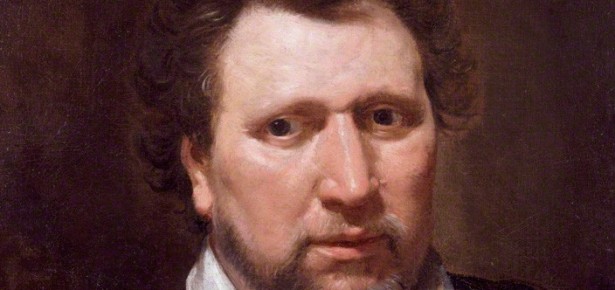
Ben Jonson was personally involved in the events surrounding the Gunpowder Plot.
He was seen in the company of plotters in the month before the events of 5 November 1605 and working for the Privy Council (the Government of the day) immediately after them, trying to contact a Catholic priest who might have information about the plotters. Jonson himself had converted to Roman Catholicism in the late 1590s, a dangerous thing to do at a time when adherence to the Church of England was required by law. But he consistently proclaimed his loyalty to the Tudor and (when James I came in) Stuart regimes.
The possibility that he was working in 1605 as some kind of double agent for the Privy Council, and particularly its most powerful member, Sir Robert Cecil (known as The Fox), cannot be discounted.
The earliest text of Volpone (1607) tells us that Jonson started to write it immediately after the discovery of the Plot and that it was performed around March 1606, while the last of the captured plotters were being tried and executed. From the very beginning there were rumours that the Plot had been fomented, or at least stage-managed, by Cecil, who was tracking its threat all along – and contrived the melodramatic events of 5 November, including a cryptic warning of the intended explosion which the King himself was said to have decoded. Volpone corroborates those rumours.
Jonson packs his 1607 text with clues about his inside-knowledge of the events and his sympathies. The first of multiple commendatory poems, from friends and admirers, is by Edmund Bolton, a fellow recusant Catholic, who like Jonson had suffered for his faith; the second is from Jonson’s friend and fellow-poet, John Donne, who had renounced his Catholicism in pursuit of advancement at court. Collectively these poems point to the plight of recusant Catholics – but also to the wit of the play in addressing the implications of the Plot for them.
The play takes the form of a traditional fox-fable (Volpone=Fox), in which a devious manipulator, with the help of a seemingly compliant parasite, corrupts the whole society of Catholic Venice. It is a metaphor for the State of England, as we see particularly in the sub-plot of Sir Politic Would-Be, an Englishman abroad who boasts of being privy to all kinds of state secrets, including a plot against Venice itself. In the end he is punished for his boasting, and finally reveals that all his talk of plots is taken ‘out of playbooks’ – it is all a fiction.
It is a wry commentary on the supposedly ‘real’ Plot which had so shaken Jacobean London, and written by someone better placed than most to know the truth.
Latest Comments
Have your say!